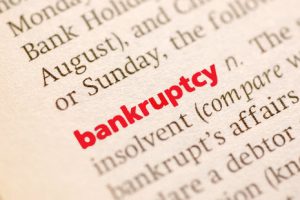Does an Indiana Bankruptcy Affect Social Security Benefits?

This question is especially pressing in certain “grey bankruptcy” matters. The over-65 bankruptcy filing rate has increased over 200 percent since the 1990s. And, a significant number of these families are mostly or completely dependent on monthly Social Security benefits.
As outlined below, bankruptcy might be the best way, or even the only way, to protect these benefits in both the short and long terms.
The rules in this area are rather complex. Only the best Chicago bankruptcy lawyer knows how to successfully navigate them. Furthermore, only an attorney can stand up for your legal and financial rights in court, if the need arises.
The Automatic Stay and Social Security Benefits
Financial triggers, mostly creditor collection lawsuits, prompt most folks over 65 to file bankruptcy. Section 362 of the Bankruptcy Code immediately halts all creditor adverse actions, such as:
- Social Security benefit garnishment,
- Benefit setoffs,
- Repossession, and
- Foreclosure.
The Automatic Stay prohibits all communication, threatening and otherwise, between debtors and creditors. However, this provision does not interrupt monthly Social Security benefits payments.
Section 362 usually applies automatically and remains in effect as long as the bankruptcy is pending. The Automatic Stay might be limited in some cases, especially if debtors have any voluntary or involuntary bankruptcy dismissals on their records.
Classifying Social Security Benefits in a Bankruptcy
Since most debtors receive monthly distributions, many people consider Social Security benefits to be income. But according to both the Bankruptcy Code and the Social Security Administration, these payments are an asset as opposed to income. That difference places Social Security payments in a different exemption category. It does not matter if the money is age-based or disability-based.
In fact, all government benefits are assets as opposed to income. Additionally, there is no value ceiling. Most Indiana bankruptcy exemptions have such ceilings. For example, Indiana law limits homestead exemptions to $40,000 in equity, in many cases. But government benefits do not have such constraints.
In addition to home equity, other Indiana exemptions include personal property, retirement accounts, partnership property, and a wildcard exemption.
Debtors can take some steps to preserve the Social Security exemption. Separating benefits and income is probably the best way. If exempt funds, like Social Security benefits, are commingled with non-exempt funds, such as current wages, things could get confusing.
Always consult with an attorney before moving any money. Such behavior could be considered fraudulent.
For filing purposes, Social Security benefits are assets. But for Chapter 13 debt repayment purposes, these benefits are income. The trustee (person who oversees the bankruptcy for the judge) may include these benefits in any proposed debt consolidation and repayment plan.
Chapter 13 gives debtors up to five years to erase secured debt arrearage. Chapter 7 eliminates most unsecured debts, such as medical bills, within a few months.
Reach Out to Effective Lawyers
Bankruptcy generally does not affect Social Security benefits. For a free consultation with an experienced bankruptcy attorney in Chicago, contact the Bentz Holguin Law Firm, LLC. Convenient payment plans are available.
Resource:
papers.ssrn.com/sol3/papers.cfm?abstract_id=3226574
https://bentzholguinlaw.com/illegal-car-repossession-in-illinois/


